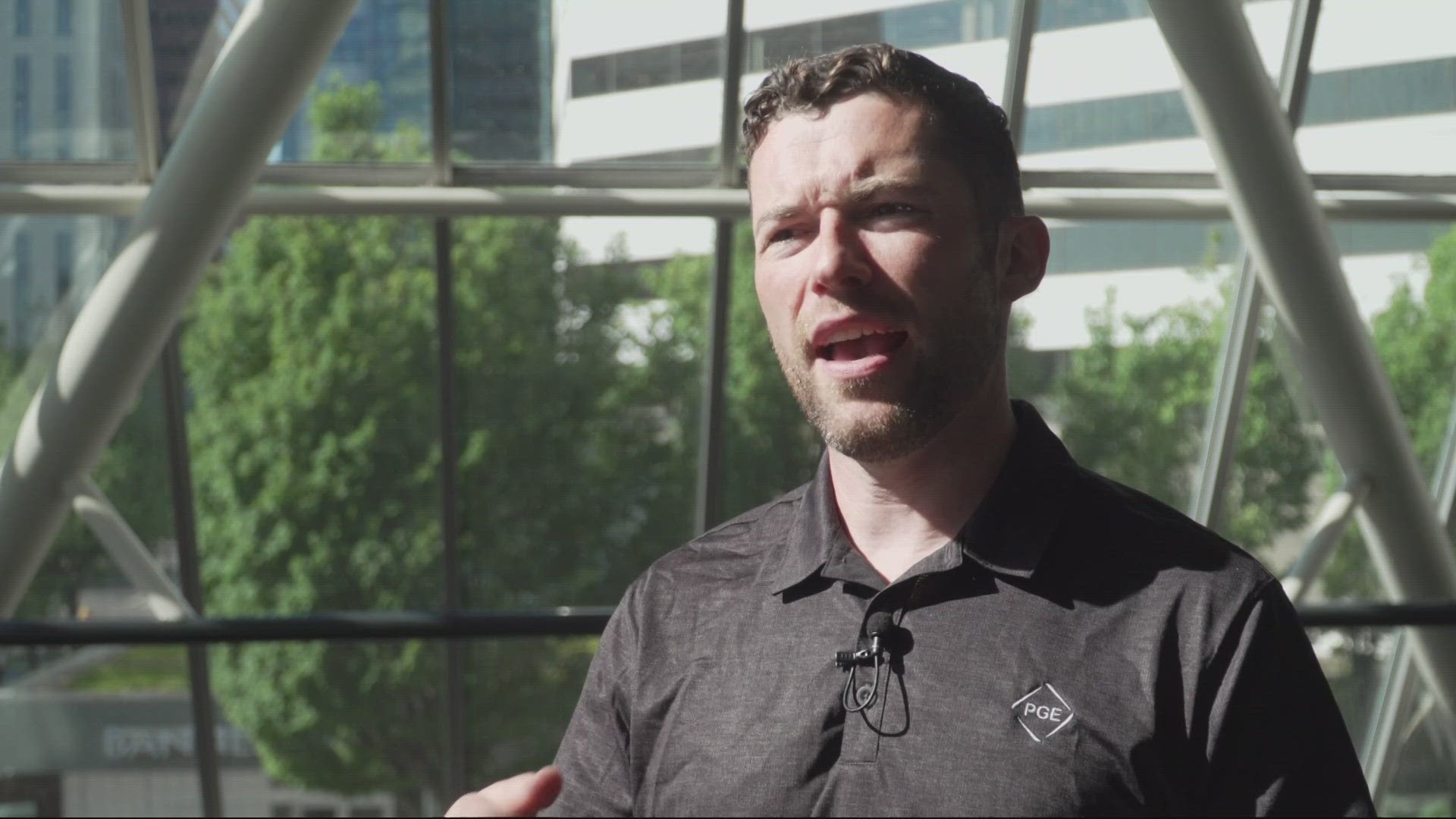PORTLAND, Oregon —
With temperatures expected to reach above 100 degrees for the second straight day on Monday, electric utilities called on their customers to help conserve power to avoid outages.
Demand for electricity is expected to spike over the record-setting, three-day heat wave currently sizzling the Pacific Northwest, and John Farmer, a spokesman for Portland General Electric, said everyone has a role to play.
“We are really encouraging customers to reduce energy usage during what we call the peak times of the day,” he said, noting that the biggest demand usually comes between 5 and 10 p.m., when many people come home from work and crank up their air conditioners.
There are three big ways people can help conserve power, Farmer said.
He recognized that air conditioning is a safety issue with temperatures in the triple digits, but he said that residents should consider bumping up the temperature in their homes to help relieve some of the stress on the power grid.
The utility also stressed that it was important not to cool homes when no one is there and to limit cooling to rooms that are in use.
Secondly, residents should be mindful of when they use major appliances like washers, dryers and dishwashers. Limiting appliance use to before 5 p.m. or after 10 p.m. is an easy way to ease some of the burden on the grid.
“The third thing is, if you own an electric car and you're not enrolled in the PGE smart charging program, set that to also start charging after the peak time,” Farmer said.
The utility doesn’t anticipate any rolling blackouts, like other states have seen during recent heat waves, and that PGE has crews positioned to respond to any trouble caused by the heat.
“We have operational personnel on standby around the clock,” he said. “We are watching the grid. We're watching our infrastructure and our equipment to make sure that it is operating the way it needs to operate.”
Still, he advised residents to be prepared just in case.
That means making sure you’re signed up for public safety alerts and planning ahead in case you need to leave your home to seek relief from the sweltering temperatures.
In the off chance you do need to leave your home, Farmer said it’s a good idea to have an emergency kit ready to go that's complete with food, water, medications and any important documents you may need.
The most important thing, Farmer said, is to have a plan.
“What is your outage plan? If your power does go out, do you know where the local cooling shelters are?” Farmer said. “Do you have friends or family where that you can go stay with?”

